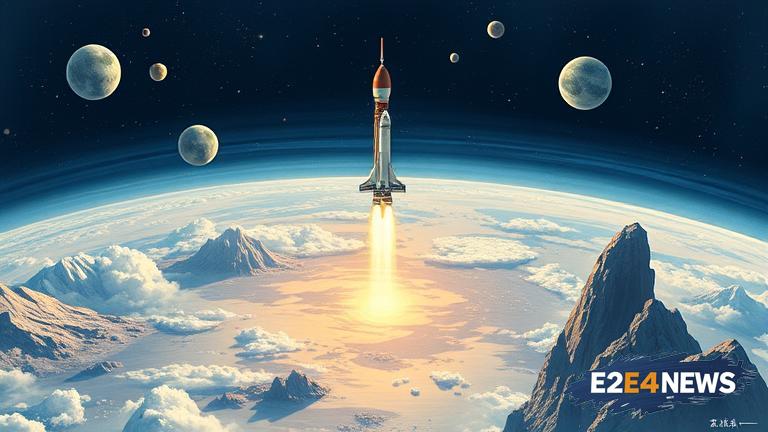China has unveiled its ambitious plans for space exploration and development, with a focus on establishing a lunar research station and conducting a Mars sample return mission. The plans were announced by the China National Space Administration (CNSA) and outline the country’s goals for space exploration and development over the next few years. According to the CNSA, China plans to establish a lunar research station on the south pole of the moon, which will be used to conduct scientific research and test technologies for future deep space missions. The station will be equipped with a range of facilities, including a landing and ascent vehicle, a lunar rover, and a habitat module. China also plans to conduct a Mars sample return mission, which will involve sending a spacecraft to Mars to collect samples and return them to Earth for study. The mission will help scientists to better understand the geology and potential habitability of Mars. In addition to these plans, China is also working on the development of a new heavy-lift rocket, which will be used to launch future deep space missions. The rocket, known as the Long March 9, will have a payload capacity of 140 tons and will be capable of sending crewed missions to the moon and beyond. China is also planning to establish a space-based solar power station, which will be used to generate electricity and beam it back to Earth. The station will be equipped with a range of solar panels and will be capable of generating up to 1 megawatt of electricity. The plans are part of China’s broader efforts to become a major player in space exploration and development. China has already made significant progress in space technology, including the launch of its own space station, the Tiangong, and the landing of a robotic spacecraft on the far side of the moon. The country is also working on the development of a range of new space technologies, including advanced propulsion systems and materials. The CNSA has said that the plans are part of China’s efforts to promote international cooperation in space exploration and development. The agency has invited other countries to participate in its space programs and has signed cooperation agreements with a range of countries, including Russia, France, and Germany. China’s plans for space exploration and development have been welcomed by the international community, with many countries expressing interest in cooperating with China on future missions. The plans are also seen as a significant step forward for China’s space program, which has been rapidly expanding in recent years. China’s space program has been driven by a range of factors, including a desire to promote scientific research and development, as well as to enhance the country’s international reputation. The program has also been driven by a range of practical considerations, including the need to develop new technologies and to promote economic growth. Overall, China’s plans for space exploration and development are ambitious and reflect the country’s growing confidence in its space program. The plans are expected to have a significant impact on the development of space technology and are likely to lead to a range of new breakthroughs and discoveries. China’s space program is also expected to play a major role in promoting international cooperation in space exploration and development, and the country’s plans are seen as a significant step forward for the global space community.
